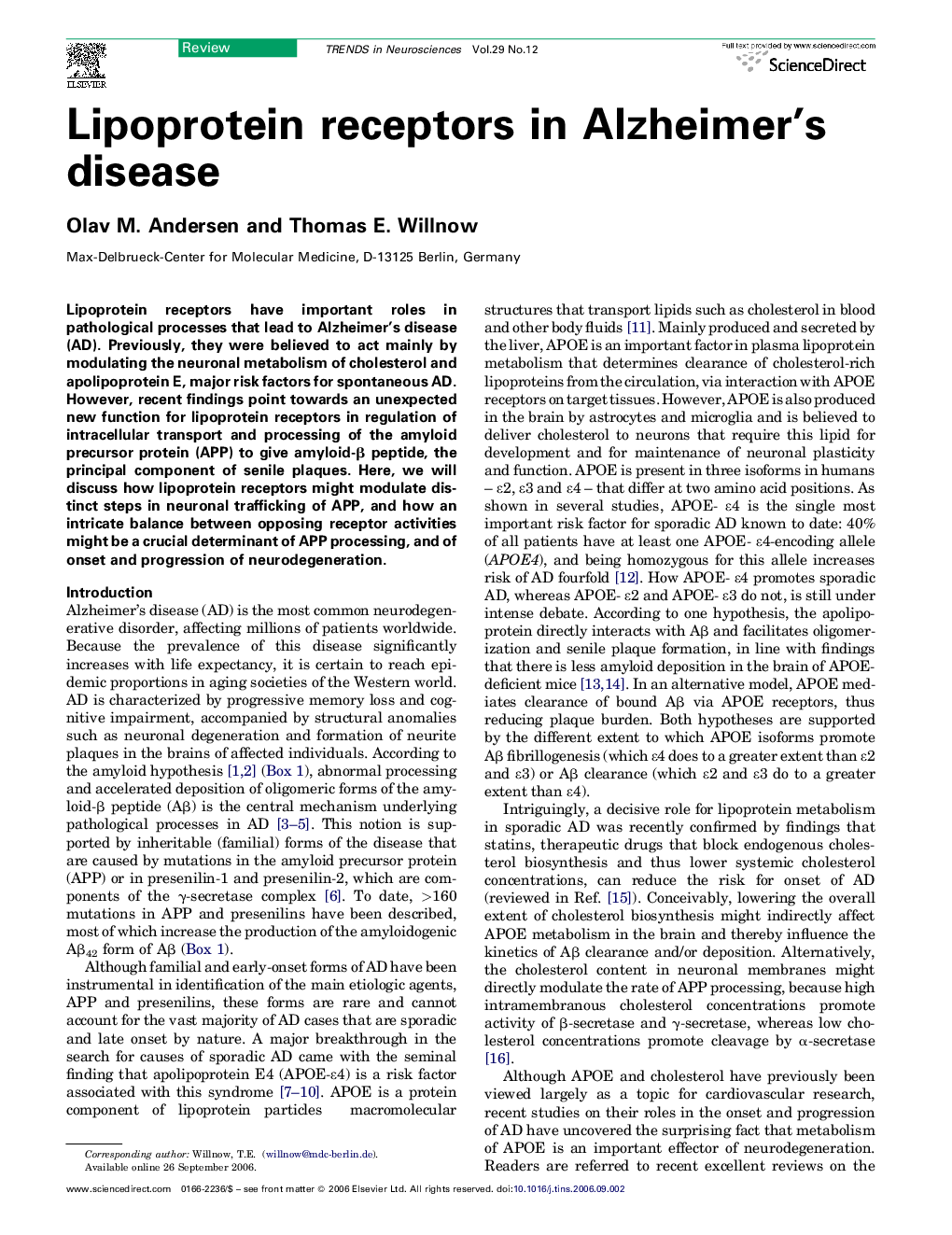| Article ID | Journal | Published Year | Pages | File Type |
|---|---|---|---|---|
| 4355021 | Trends in Neurosciences | 2006 | 8 Pages |
Lipoprotein receptors have important roles in pathological processes that lead to Alzheimer's disease (AD). Previously, they were believed to act mainly by modulating the neuronal metabolism of cholesterol and apolipoprotein E, major risk factors for spontaneous AD. However, recent findings point towards an unexpected new function for lipoprotein receptors in regulation of intracellular transport and processing of the amyloid precursor protein (APP) to give amyloid-β peptide, the principal component of senile plaques. Here, we will discuss how lipoprotein receptors might modulate distinct steps in neuronal trafficking of APP, and how an intricate balance between opposing receptor activities might be a crucial determinant of APP processing, and of onset and progression of neurodegeneration.
